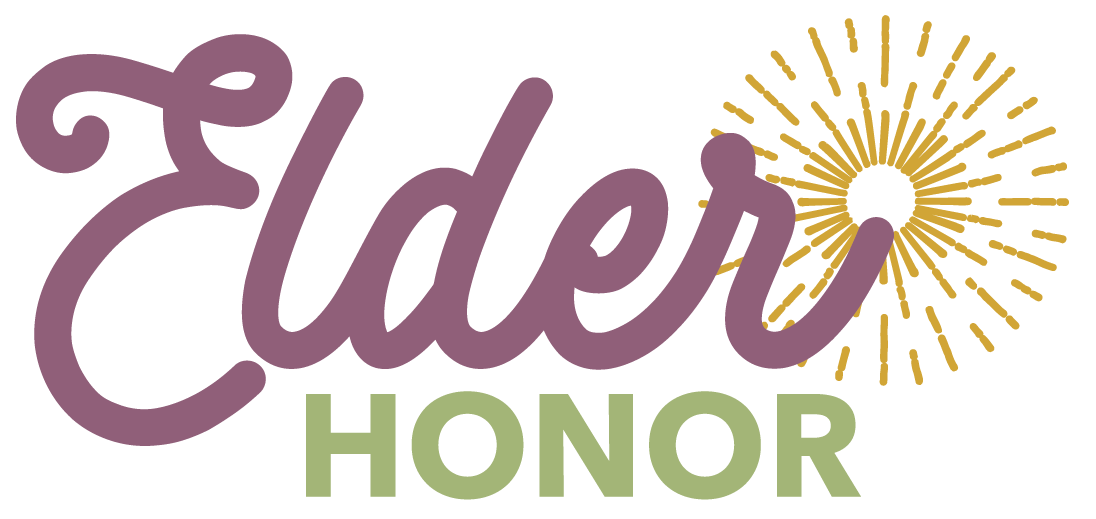
You can now have confidence when it comes to your
aging parent’s health and wellbeing.
In a very short time you will:
- See what is coming your way , and know what to do.
- Be able to assess just about any situation.
- Engage family members in helping out.
- Have assurance when speaking on behalf of your parent.
- Feel confident in your decisions.
You may not have thought about who would take care of your parents, in-laws, uncles, or aunts as they get older and need help, but here you are, faced with the task of figuring out how to do the best for them. They probably think they can do this on their own, or don’t even want your help, but you can see the time coming when you will need to step in and help. A little at first, making suggestions, doing small tasks, but one day it will hit you that this is going to turn into a full-time job sooner or later. Now the question is: What to do when that day comes?
Training Overview
We have a brief video overview of the material below.
It will give you insight to the look and feel on how we guide you along in your journey.
We hope to see you soon!
Gain confidence in the knowledge you learn from this course.
14 short sections, more than 30 checklists & worksheets at your fingertips.
No more anxiety or stress about what to do.
The outline of our material.
- Starting the Conversation
- Assessing the Situation
- Division of Care
- Remote Caregiving
- Caring for Yourself
- Aging in Place
- The Move
- End of Life
- Final Arrangements
- Grief
- But wait, there’s more
- Estate Planning
- Documents
- Build the Plan
Price $197
My wife and I were in the position of having to make decisions on behalf of our parents several times. We had a mother who had everything taken care of for her and another mother who refused to admit she was getting older and did not need help from anyone. Then there were the in-between parents that had some help but needed more, and by the time they let us in, we had to scramble to figure out what to do.
You may already be in that situation with unexpected rapid onset of a disease, injury, or death of one of your parents and now need to take care of the one that is left behind. All of a sudden, you are put on high alert, trying to figure out what to do next, reaching out to anyone for information or examples or anything else you can grab onto.
You may still have your own kids living with you, and now, add another who you know will require more and more of your time. This is called the sandwich generation; it’s got nothing to do with food! It describes being sandwiched between your parents and children while trying to live life and work full-time.
Our mission at ElderHonor is to help
Honor your parents by educating you with
Knowledge to be able to provide a better
Life for your parents as they age.
Honor – Knowledge – Life
Honoring our parents is something that we should all be doing, even though it is challenging at times. The Bible talks about honoring your mother and father as number five of the big ten. It is the only one that comes with a benefit, “So it will go well with you.” Do you want things to go well with you? Then honor your parents.
Our focus is on educating you to help them when they need it the most – as they age. They have been there our entire lives, and we expect them to be there forever. We do this because many do not think about our own parents losing abilities, slowly at first, then more rapidly towards the end. Other people’s parents do that, not ours.
It also comes at a time in our lives when there is so much going on; children to raise and going through puberty or teenage crises, careers to manage, (un)balancing work and life, vacations to take, friendships to grow, moving to a new location, and on and on. We miss what’s happening until someone points it out to us or a significant event happens.
We built this course to help you plan through this time. Having gone through it with our parents and extended/blended family, we were right there with you trying to figure out what to do. At first, things just happened; then, after another parent aged and died, we started seeing differences based on how they prepared or didn’t. Knowing what to expect helped a lot, but planning ahead was better.
This is what we want you to experience, planning ahead, gaining confidence in your decisions, bringing in the family to help when needed. This online course is taken at your speed so you can consume it when you have time. We recommend that you set aside a specific time every other day to go through the course to get it completed in a week or two.
We recommend you take the course in order as each lesson builds on the previous one. It will also help you organize your thoughts and next steps.
1. Starting the Conversation

We all have trouble talking about certain subjects with our parents. This lesson gives you the tools to think through before you start the conversation. Framing the conversation is essential; your Mom is different than your Dad, (they really are!) so understanding how to approach them can make it go much more relaxed. You do this with your children and spouse already, so we show you how to extend that to your parents. We even give you five example conversations to get you started.
2. Assessing the Situation

Once you have started the conversation, you can now evaluate where they are with their health, home, physical, financial abilities, social life, and more. We provide you with checklists and worksheets that guide you through each assessment so you can have an understanding of how they are doing in each area. It also helps your parents to realize where they are and start making decisions that they may have put off for too long.
Lastly, we recognize that asking this of you and your parents may be stressful, so we walk you through how to find and hire professionals who do this for a living if needed. This can take the burden off you and help you walk with your parents on this journey. It is a journey; it may last a couple of months or several years, and we help you prepare.
The Caregiver Toolkit course is very comprehensive with many helpful forms, checklists and links. The course focuses on maintaining your loved one’s dignity and honoring them as they age. The Caring for Yourself section was useful as I reflected on how the caring for my aging mother has been affecting me. The recommendations on staying healthy were a good reminder as I support my mother who lives alone and not close by. I only wish this course had been available years ago when my father was still living as some decisions made for their end of life care may have been different and more thought out.
Karen F.
3. Division of Care

There’s more to caregiving than meeting physical and medical needs. As your parents’ age, there will be a lot of appointments, housekeeping, repairing, remodeling, and eventually, feeding and caring for their personal needs. Caregiving can become overwhelming, especially if you are the only one providing care. This lesson walks you through how to divide that care up between family members and professionals to lighten that load and help you stay focused on the big picture.
We provide worksheets to divide up care and responsibilities, so everyone knows who will be doing what and when. Using these tools will help with engaging those who are still not ready to dive in to help as well as show them how much needs to be done on a regular schedule.
4. Remote Caregiving

With life comes the opportunity to move just about anywhere in the world. A new job, education, divorce, or a better experience will take you away from home for many years or even permanently. When your parent ages, you may be in a position where you need to provide care remotely, working with other family members or leveraging local resources. This was our challenge, we were on one coast, and the parents were on the other. Flying back and forth had to be planned, or it would have wiped us out financially.
This lesson outlines how to do just that, so you know, as well as everyone else, what to expect. We also talk about time or conditions that may require you to travel. We provide a worksheet so you can set Thresholds to know when you need to go. Doing this ahead of time takes emotion out of the equation and allows you and others to set expectations about you being there. This Threshold sheet can be used for any number of situations as well.
5. Caring for Yourself
There may come a time when you seem so focused on providing care that you forget to care for yourself. This lesson talks about giving yourself permission to take time off, get away, and reconnect with yourself, family, and friends. We talk about where to go for help on a daily or a long term basis so you can get things done, take a spa day, or a vacation. Or, to just get away by yourself and enjoy a good cry or scream. Been there. Planning this out will reduce stress, knowing that your parent is being taken care of while you are away.
We also talk about the importance of daily exercise and hobbies throughout this time to keep you fit as well. Staying healthy during this time is the best thing you can do for yourself and your parents.
6. Aging in Place

Almost 90% choose to age in their own home rather than a facility. Doing so requires adjustments from everyone. Your parents’ needs change over time, and so does the ability of their home to fulfill those needs. You may need to renovate a kitchen or bathroom to accommodate their physical constraints. There are several minor changes that you can make without much work as well. We describe those in this lesson and point you to professional help if and when needed.
7. The Move

Moving your parents out of the home they’ve lived in for decades can be traumatic for them, for you, and the rest of the family. This move doesn’t have to be into a facility or retirement community. It can be in with you (Yikes!), other family members, or a group home. This lesson gives you options to consider when relocating your parents. It gives you guidelines to lower the anxiety of moving and figuring out what to do with all the stuff accumulated over the past years, some of which is probably yours!
8. End of Life

No one wants to talk about the end of their life, but there are things you should know as you enter that stage that will help you recognize the progression. This lesson educates you on Trajectories of Illness, so you know what to expect and reduce the shock. It will also provide an overview of choices available when the time comes as well as types of care that can help with managing their pain and reduce stress for everyone.
9. Final Arrangements
Here is another discussion no one wants to have, but once you do, it relieves tension and allows you to understand your parent’s wishes. You can use this lesson to guide a discussion with your parents concerning what happens to them after their passing. Set it up now, and you won’t be guessing about what to do when you’re staring across the desk from a funeral director.
10. Grief

We take some time in this lesson to talk about grief and its effects it will have on you and others. We give you an overview of the types of grief as well as the five stages of grief, so you know what to expect and can, hopefully, recognize where you are in the process. You can use this Chapter to help others through their grief as well. It will be hard when you’re in the middle of it, but almost everyone makes it out the other side. Those that don’t we recommend professional help.
11. But wait, there’s more – there always is
There is always more to do after your parents passing. Making sure everyone is notified, the home is sold, accounts are closed, businesses are wound down or sold, and many more items that will need your attention. This lesson helps you know what to look for and how to wind down your parent’s affairs in an orderly manner. You can also use this to ask them beforehand what they would like done with things they own, organizations they are involved with, or otherwise handle their estate.
12. Estate Planning

Although we do not provide Estate Planning services, we offer a set of steps to establish an estate plan for any assets your parents might have. Yes, almost everyone has some assets that will need to be taken care of once they are gone. We recommend you work through this with your parents beforehand as it will help in avoiding the court system after they pass and reduce or eliminate arguments over who gets what. We also discuss Trusts and Insurance in the lesson to help you understand how these might work to your parents’ advantage.
13. Documents

This lesson reviews all the documents necessary to manage your parent’s affairs, and yours as an added benefit. These should be established before they are needed. We recommend you get started on these right away, as in right after you finish this course. Once created, these documents will provide everyone with a clear set of directions and instructions on how to have your parent’s wishes known by the family and who can step in when your parents can’t speak for themselves.
14. Build the Plan
Our final lesson gives you the Plan to pull all of the previous recommendations and documents together in a short time frame. We have you set a schedule of events that can be coordinated with other family members while spreading out the workload. Once completed, you will have items in place that will reduce emotion, stress, anxiety, and fear of the unknown so that you can focus on what is important – being with your parents.
Throughout this course, we provide you with over 30 checklists and worksheets to guide you through each lesson. Following these lists and sheets will help you focus on what needs to be done so that you can spend more time together.
This course is excellent! It is full of so much information about a subject that isn’t discussed enough. Honoring your loved ones by caring for them as they age is a beautiful thing but can be so complicated and overwhelming, mostly because we are trying to figure things out as we go and feel so unprepared. This course helps alleviate that stress with clear teaching and gives you tons of tips and tools to feel confident about making difficult decisions. It is so well organized and easy to go back through and find exactly what you need, when you need it. Thank you for giving this topic the attention it deserves!
Haley d.
Don’t wait for the next crisis!
Honor your parents by educating yourself to have the
Knowledge to handle and give
your parents (and you) a better Life.
Price $197
Yes, you can do this on your own.
Count the costs. Some can do this and they do a fair job of it. But at what cost? Think about time spent finding all the pieces and parts you need , trying to put them together, communicating best guess’s with your parents and siblings, and potentially not knowing what you missed. If you start now it might take several hours a night over several months. How valuable is your time, especially if you’re in the middle of taking care of your parents now? That easily adds up to hundreds of hours. Oh, and don’t forget all the other responsibilities you have, take a minute a list them before taking this step and choose those you can drop while searching and organizing. I’m sure you can already feel the anxiety and stress building up.
Hire someone. A professional’s time is anywhere between $150 to $450 per hour, you are paying for experience. You may have to hire someone eventually to care for your parent, but do you want to be paying all the up-front hours they will need to sort out your parents life? You can get an assistant for this but they could miss a lot of things, and, it’s not their parent. Do you think it would be better to walk into their office with everything in place and only have to pay for what they do best?
You can wing it. Some people are really good at this, but you need to be aware of unintended consequences and the stress, anxiety, uncertainty, and doubt that comes with that. You may also miss important aspects of caregiving that could impact your parents and you. You’ll be putting you, your family, children, siblings, aunts, uncles, and parents through some stressful times. Don’t forget that everyone, family and friends, will be judging what you’re doing the entire time..
Wouldn’t it be better to know what’s coming and have a plan to follow so that everyone knows what to expect. Think hard about this choice. I’m not sure how to measure avoiding anxiety, stress, uncertainty, and doubt but I know everyone wants to minimize this as much as possible!
Our goal is that everyone in the family works together on this course. thereby spreading the knowledge around. It will impact your family for generations: your parents, you, your siblings, your children, and their children. It is something that should be passed down for generations, to Honor your parents, so it goes well with you.
This price does not include the quality time you will be spending with your parents building the Plan with them or your parents knowing that you cared enough about them that you took this course. OK, that was a bit over the top, but we know you’ll appreciate the sentiment.
